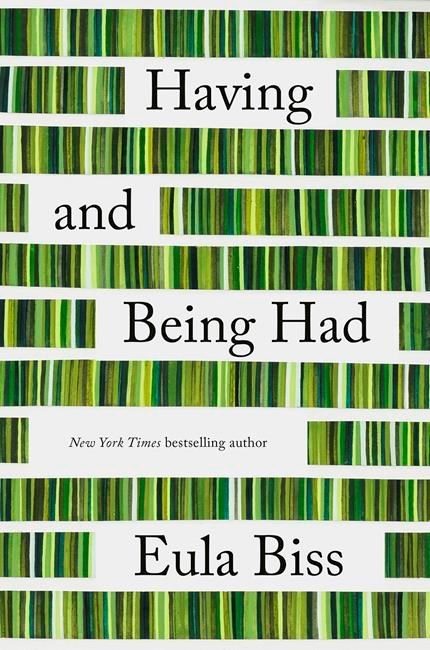“Having and Being Had,” by Eula Biss (Riverhead Books)
When it comes to capitalism, Eula Biss is a skeptic. And yet, as a university professor and homeowner, she’s invested in the system. Out of those contradictions, she’s written a sensational new book, “Having and Being Had,” which tries to figure out whether it’s possible to live an ethical life in a capitalist society.
Biss, whose previous book “On Immunity” explored the myths and science of vaccines, begins this one in 2014, when she bought her first house in a historically Black Chicago
She kept a diary and when the time came to write the book, gave herself a set of rules. Each section had to start in the present tense, include an exchange with another person, etc. It might sound arbitrary, but the rules grounded her abstractions in the nitty-gritty of domestic life.
“My adult life,” she writes, “can be divided into two distinct parts — the time before I owned a washing machine and the time after” — and that’s because the so-called
Her allusive blend of autobiography and criticism may remind some of “The Argonauts” by Maggie Nelson, a friend whose name pops up in the text alongside those of other artists and intellectuals who have influenced her work. And yet, line for line, her epigrammatic style perhaps most recalls that of Emily Dickinson in its radical compression of images and ideas into a few chiseled lines.
Happily for readers, Biss wears her erudition lightly. Since she evidently slogged through Thomas Piketty’s mammoth “Capitalism in the Twenty-First Century,” not to mention works by Karl Marx and Adam Smith, that means we don’t have to.
Also, she’s really funny, with a barbed but understated wit. At an ice rink where she’s taken her son for a skating lesson, another mother watching from the bleachers notices she’s reading John Kenneth Galbraith’s “The Affluent Society.” When Biss expresses her reservations about our economic system, the woman, whose husband is a financial analyst, “seems slightly offended on behalf of capitalism.”
Keenly aware of her privilege as a white, well-educated woman who has benefited from a wide network of family and friends, Biss has written a book that is, in effect, the opposite of capitalism in its willingness to acknowledge that everything she’s accomplished rests on the
Ann Levin, The Associated Press


